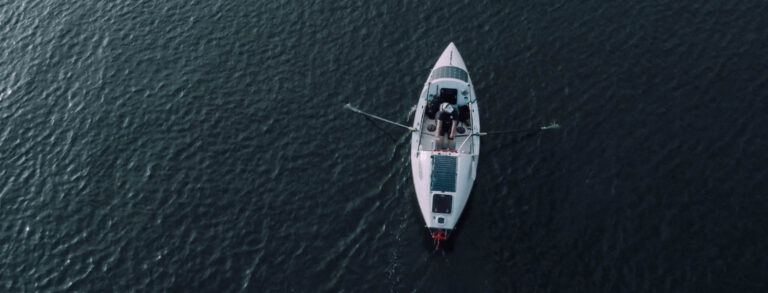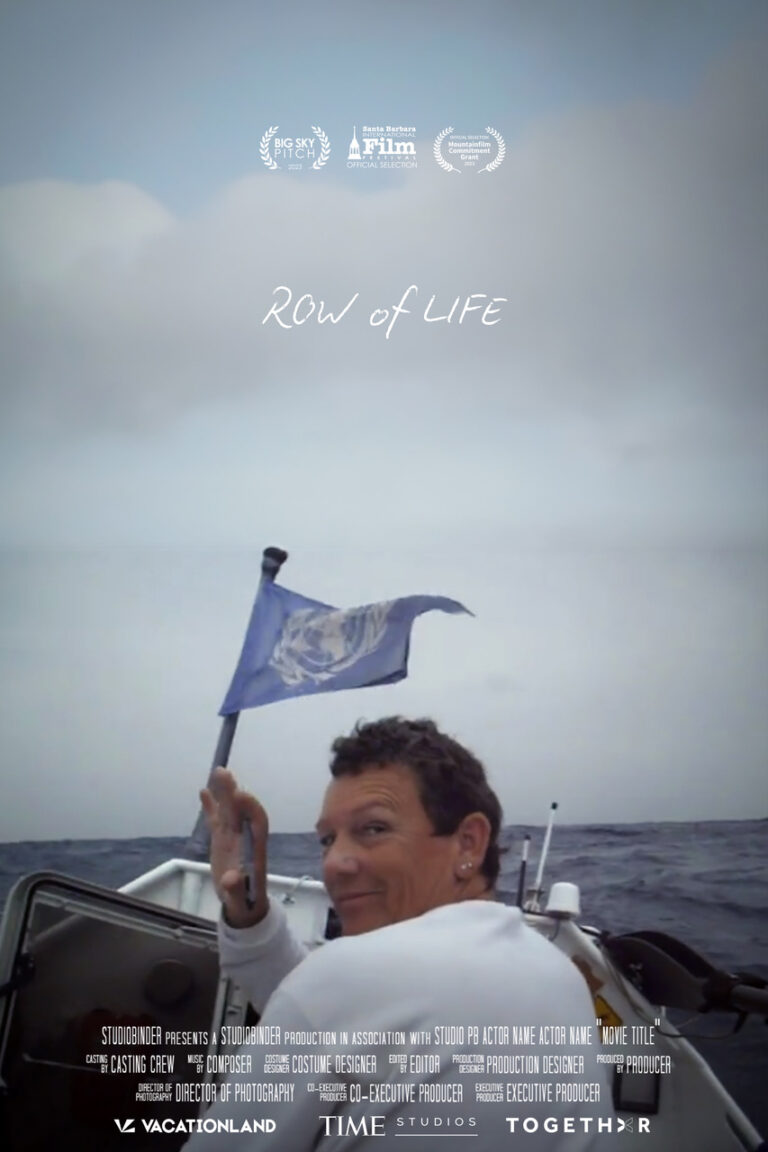
13 Feb Interview with Soraya Simi – Row of Life
When filmmaker Soraya Simi first learned about Angela Madsen story: a paraplegic athlete striving to become the oldest woman to row solo across the Pacific, she hesitated, uncertain if she was ready to take on such an ambitious project. Yet, Angela’s unwavering spirit drew her in, setting the stage for a journey that would test both filmmaker and subject in unimaginable ways.
Through Soraya’s lens, Row of Life offers a powerful glimpse not only into Angela’s extraordinary feat but also into the emotional weight carried by those who supported her, particularly her devoted partner, Deb. In this interview during the Santa Barbara International Film Festival (SBIFF), Soraya reflects on the challenges of bringing this story to life, the lessons she learned, and the profound impact of a film that is ultimately a testament to love, determination, and the boundless potential of the human spirit.

1. How did you first come across Angela’s story, and what compelled you to document it?
Angela contacted me after I had graduated from USC’s Film School – she had seen a sailing documentary I’d produced which played at her local yacht club. Angela sent me a message on Facebook asking if I would be interested in documenting her attempt to be the oldest woman and only paraplegic to row across the Pacific solo. At first I turned it down, or made it clear that I wasn’t far enough in my career to take on such an ambitious project. Angela’s unique personality and knack for luring people eventually convinced me… there was something so obviously special about her, and I was motivated to amplify a character I’d never seen on screen before.
2. How much time did you spend with Angela’s family throughout the filmmaking process?
Angela and I worked together for just shy of one year before she left for her solo row. We documented all her preparation, training, and deeper reflections on her true motivations for this remarkable human feat. Her family, especially her life partner, Deb, has been intimately involved with the filmmaking process from start to finish as well.
3. The documentary not only captures Angela’s journey but also the emotional toll on her loved ones. How did you approach telling both Angela’s and Deb’s perspectives?
Deb’s arc was revealed overtime — it was clear that Angela was always the star, but Deb, the quieter, behind-the-scenes, utterly devoted life partner played an equally essential role. As the story unraveled in real time, it was apparent that Deb was actually going through the biggest personal transformation in life, and leaning into how she coped and blossomed in that experience made for an exceptionally unique love story — one in which each partner is given the unconditional love and support to become who they truly are.
4. Since Angela was at sea for long stretches, especially on her row from California to Hawaii, how did you manage to obtain footage from her journey? Did she send material via satellite daily, or was there another method?
Without giving too much away – as this is a major aspect of the plot – Angela was a totally autonomous filmer at sea. Her boat was rigged with almost 30 cameras, and we were utterly reliant on her making it to Hawaii to recuperate that footage. How we eventually got the footage was different than expected, but made for some extraordinary twists.
5. How do you think Angela’s story can change other people’s perspectives about living with disabilities the way she even changed her own?
Angela had a mantra: Disability is not a death sentence — there is life after disability. She worked every day of her life to champion the overwhelming ABILITY people had. We hope this film helps recalibrate what people assume is possible, and we are grateful to be working closely with Angel City Sports, a non-profit focused on adaptive athletes achieving the extraordinary.

6. What were some of the biggest challenges you faced in bringing Row of Life to life, both logistically and emotionally?
This film carried profound obstacles – arguably the worst that can happen to any filmmaker, happened to me. It was my very first film. The media attention on Angela and me was totally overwhelming, and made me feel like every choice I made as the leader of this project was under immense public scrutiny. Logistically, it was unbelievably complex – from a robust search & rescue, to byzantine politics in faraway island nations, and so much more. Emotionally, it taught me how the stakes in non-fiction storytelling are not imagined, but very real, and the choice to nurture such a close director-subject relationship must be considered very carefully.
7. How did the whole process change you?
In many ways Angela and the making of ROW OF LIFE has surprisingly been one of the most spiritual experiences of my life. I believe in miracles now. I believe that we all have a purpose on this earth, and every conflict we face, no matter how big, can be overcome with immense dedication and profound love.
8. How do you think her journey challenges societal perceptions of living with disabilities? And also, going after your dreams no matter the age?
It shows people that it’s possible. Angela was a prodigy at so many sports: basketball, volleyball, track, shot put, javelin, and ocean rowing. Rowing really emerged as her favorite because while she was in a rowing seat, it disguised her disability. No one knew she was in a wheelchair off the boat. She epitomizes what it means to bust through any perceived barrier, and I think it’s an important lesson for people to internalize.
9. What do you hope audiences take away from Row of Life and Angela’s extraordinary legacy?
1) That anything is possible if you never give up
2) That true love means letting the person you love be who they really are, despite the sacrifice it may take
3) That we all have a deep purpose and destiny, and our task here on earth is finding our own authenticity
10. How do you think Angela’s story can continue to inspire people beyond this film?
We hope Angela’s legacy finds its place in history alongside Amelia Earhart, Rosa Parks, Eleanor Roosevelt, etc. She is in that class of women through and through – boundary-pushing, misbehaved (in all the right ways), and a truly indomitable spirit. We aim to produce a scripted adaptation of her story, and continue to nurture the ROW OF LIFE universe for all women in sports, adaptive athletes, LGBTQ+ allies, veterans, and beyond.




Sorry, the comment form is closed at this time.